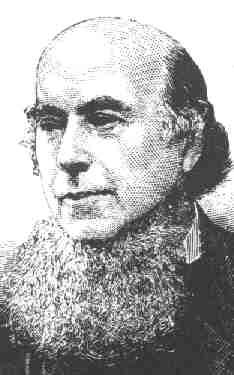|
IF the person who called himself Father Chiniquy had confined himself to the ministrations of the religion for which he forsook the Church of his baptism, we might have left him unchallenged to give his own account of the motives and circumstances of his alleged conversion. But inasmuch as he has sought to gain popularity and income by wholesale misrepresentations against the personal character and beliefs of those with whom he was previously associated, and his books written for this purpose are still widely used as instruments for the persecution of poor Catholic working men and working women in the shops and factories, those connected with him can have no complaint against us for submitting his past career to a searching examination, even if the result should be to discover facts not tending to exalt his reputation. So far, indeed, we have not taken this course, the difficulty of obtaining the requisite information from distant places having been so great; but so many piteous appeals have reached us from the victims of this unscrupulous persecution, that we have seen the necessity of putting the man's story to the test, and through the kindness of some American and Canadian friends we have been supplied with some materials which, if they do not enable us to check his story at every point, suffice at least to show that he was not exactly the witness of truth.Before entering on the particulars of his life it will be convenient to consider the general nature of his charges against the Catholic Church and her clergy. And here at the outset we discover a very remarkable development in his allegations. In his earliest biographical effusion, published by the Religious Tract Society in 1861, he bases his conversion solely on doctrinal considerations, and so far from bringing charges against the moral character of the Catholic clergy, he says expressly that there are in the Church of Rome many most sincere and respectable men, and that "we must surely pray God to send them His light, but we cannot go further and abuse them"; nor is there any charge against their personal character in his Why I left the Church of Rome, which comes next in chronological order. But it would seem that the ultra-Protestant palate required something more stimulating, for in his verbose and voluminous Fifty Years in the Church of Rome (1885) he tells quite a different story. There he represents himself as one whom the influences of birth, education, and social connections attached firmly to the Catholic Church, but whom a series of appalling experiences as a child, as an aspirant to the sacred ministry, as a priest, drove in spite of himself to realize that this Church was utterly unscriptural in her doctrines and corrupt in her morals. Gradually and sorrowfully he was led to realize that her rulers were perfectly well aware of this opposition between her teaching and that of the Bible, and just for this reason strove always to keep the knowledge of the sacred volumes from her people, forbidding her laity to possess copies of them, and her clergy to attach to them any meaning save such as was dictated by a unanimous consent of the Fathers, which was never obtainable. Gradually and sorrowfully he was led to realize that the practice of auricular confession meant nothing less than the systematic pollution of young minds by filthy questions, and that the vow of clerical celibacy served only to set the priests on the path of incontinence. Gradually and sorrowfully he was led to realize that the clergy practically as a whole were drunkards and infidels, whose one interest in their sacred profession was by simony and oppression to make as much money out of it as their opportunities allowed them.Thus Bishop Panet is represented as making the acknowledgement that "the priests [of the diocese of Quebec] with the exception of M. Perras and one or two others, were infidels and atheists," ¹ but as finding a strange consolation in learning from M. Perras that "the Popes themselves, at least fifty of them, had been just as bad."Father Guignes, the Superior of the Oblate Fathers, tells him "there are not more undefiled souls among the priests than in the days of Lot" (p. 280), that "it is in fact morally impossible for a secular priest to keep his vow of celibacy except by a miracle of the grace of God," but that "the priests whom God calls to become members of any of the [religious] orders are safe." Later he discovers that, so far from this being the case, "the regular clergy give themselves up with more impunity to every kind of debauch and licentiousness than the secular" (p. 308). In Illinois things were quite as bad, indeed much worse. "The drunkenness and other immoralities of the clergy there" -- as pictured to him on his arrival in those parts by a M. Lebel, a Canadian priest who had charge of the Canadian colonists of Chicago -- "surpassed all [he] had ever heard or known" (p. 352), and somewhat later he made the painful discovery that Lebel himself was among the worst of them.
| |









